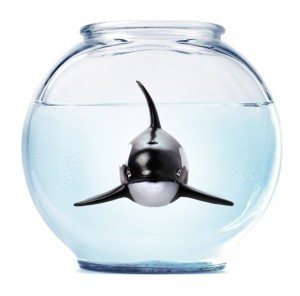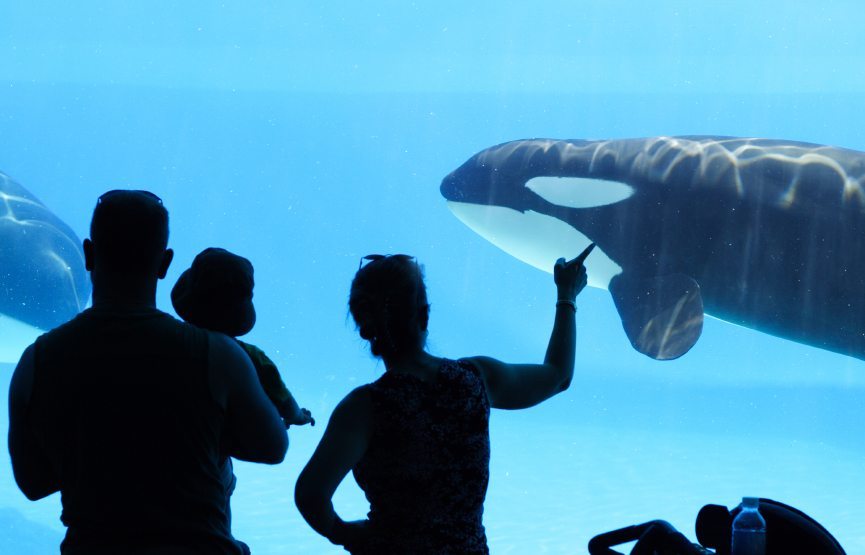What an Orca Can Tell You About Leaving Your Job
I’ve been writing for some time about living in the “alternate universe–” meaning, life on the surface at work doesn’t match up with the values you carry deep down. It may be something innocuous, such as having to adjust to the reality of cultivating “alliances” rather than meaningful relationships. Or it could be one bad egg who uses her power to make people miserable. Many offenses in the alternate universe can be fixed from within: calling out inconsistencies or getting rid of that bad egg.
“Blackfish,” a documentary about SeaWorld’s treatment of its Orca whales and their trainers, provides a useful lesson about when the situation is so systemic, it might be time to leave.
1. The job has a mystique to it.
Joining your company was an elite feat—they don’t hire just anyone. Your sensors were down during the interview and on-boarding process; you didn’t see (or want to see) what might be going on behind the curtain.
The former Orca trainers interviewed in the documentary talked about the prospect of joining SeaWorld in romantic and wistful tones. The idea of swimming with these magnificent beasts, some said, blinded them to problems for years.
2. Associates who are adept at communicating the party line are rewarded.
The superstars at your company communicate the company policy eloquently on camera or in the boardroom. Co-workers who ask uncomfortable questions are marginalized. SeaWorld’s scripts for performers included incorrect information about Orca longevity, the prevalence of the floppy dorsal fins and the quality of their lives in general. “I spewed out the party line during shows,” one former trainer says. “I am totally mortified now.”
3. You get incomplete information from leadership.
When something goes wrong, the information released to associates is highly crafted and often incomplete. There were 70 instances of Orcas displaying dangerous behavior over the years, most of which new employees never knew about. When incidents were reported, several former trainers said the information they received was sketchy at best.
4. Regulators are always around.
The company may pay fines, but thanks to the company lawyers, there are few long-term consequences. Problems die down for a while, but the regulators keep coming back year after year. OSHA was created in 1970 to assure safe and healthful working conditions for workers. They’ve been watching (and suing) SeaWorld for some time now. SeaWorld is currently appealing the latest verdict.
5. You watch the blame game unfold every time.
When something happens that gets the attention of the press, your company points its finger at someone else: an employee, a corrupt regulator, or an activist with a misguided agenda. Time and again, SeaWorld explained away accidents and deaths by claiming trainer error. They responded to the documentary by discrediting interviewees and pointing out editing issues that are irrelevant to the story.
6. Systemic problems go on for years.
If you’ve been at the company for a good while, you start to see that the issues never seem go away. Every time there is a problem, the company responds quickly and seemingly responsibly. But the real issue is never really addressed.
It seems to me that the systemic problem at SeaWorld has less to do with safety issues and more to do with a foundational fact. Orcas are huge, powerful mammals born to live with their natural family pods in the great open sea. Penning and training them to perform for an audience is just not a good idea on any level. (Other than profit.)
7. Your stomach hurts when you go to work.
There is a nagging voice in your head or a hole in the pit of your stomach when you go to work. That’s your value set talking, pointing out that what you are doing doesn’t line up with what you believe.
In the documentary, a tough-looking guy talks of capturing Orcas for SeaWorld in the 70’s. While hoisting a young whale from the sea, members of its pod stayed nearby, calling out to their lost son as he called back to them.
That’s when he understood what he was doing. “I lost it, I started crying. I didn’t stop working, but you know…It was just like kidnapping a little kid away from the mother. But everyone was watching. What could I do?”

If most of these warning signs resonate with you, you’re likely working for a company that can’t be snapped back to reality without a major overhaul. It’s unlikely you’ll be able to change the culture unless you’re sitting in a place of real power.
The ache in your gut is real. It’s a symptom that you are not living in your integrity. Start planning your escape now.







